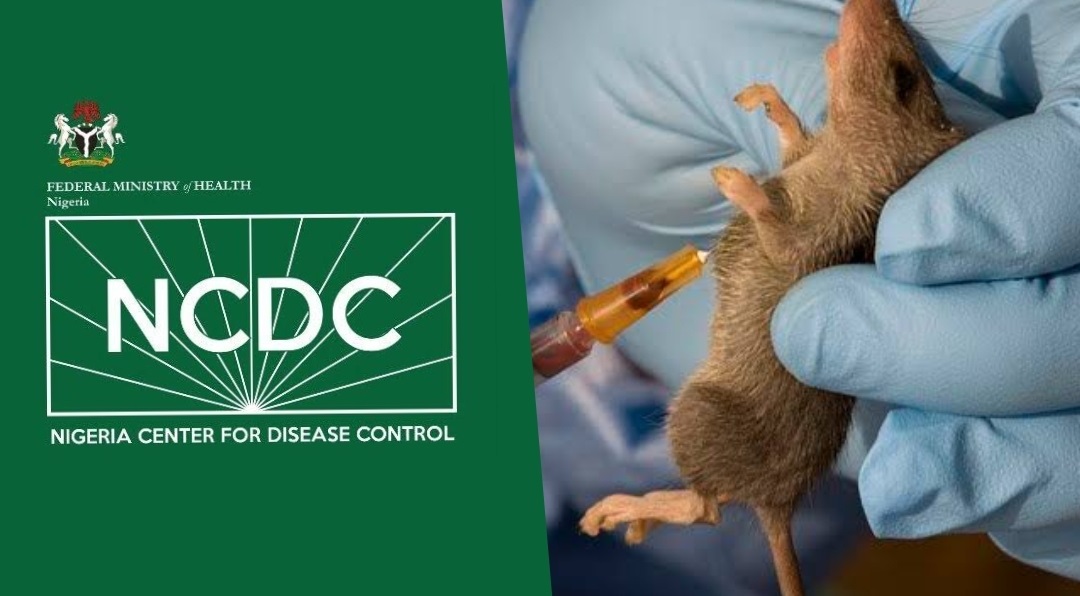Health
10 sexual benefits of bananas for men and women

Explore the fascinating sexual benefits of bananas and how incorporating this delicious fruit into your diet can spice up your love life.
This fruit, however, also comes with some surprising benefits for your bedroom activity. This article delves into some benefits of bananas sexually for both men and women.
Benefits of bananas sexually for men
Men can benefit from dates sexually in the following ways;
Increased libido
For men who eat bananas, they get to enjoy higher testosterone levels as bananas are rich in vitamin B and potassium, which can help boost testosterone levels. Higher testosterone levels are associated with increased libido and sexual desire in men.
Improved stamina
Bananas also help men sexually by improving their stamina. This fruit contains potassium which helps in maintaining muscle function and preventing cramps. This can translate to improved stamina during sexual activity, allowing men to last longer and enjoy more fulfilling experiences.
Enhanced blood flow
Eating bananas also helps men sexually as it promotes healthy blood flow. The presence of potassium and other nutrients in bananas is what is responsible for this. Improved circulation is beneficial for achieving and maintaining erections, leading to better sexual performance.
Stress reduction
Bananas contain tryptophan, an amino acid that helps in the production of serotonin, also known as the “feel-good” hormone. One of the roles of Serotonin is regulating mood, emotions, and overall well-being. When serotonin levels are balanced and optimal, it can have a positive impact on various aspects of mental and emotional health, including stress reduction. Stress is often linked to decreased libido and sexual desire which means the less stressed you are, the more you are likely to have better sex.
Prostate health
Bananas contain vitamin C which is important in supporting prostate health. This means bananas can be beneficial sexually as it helps in reducing the risk of prostate-related issues that can affect sexual wellness.
Benefits of bananas sexually for women
Women also benefit from bananas in the following ways;
Increased libido
Just like in men as mentioned earlier, the vitamin B and potassium content in bananas can help boost libido in women. In other words, eating bananas can help to enhance sexual desire and arousal in women.
Hormonal balance
Bananas contain vitamin B6, which plays a role in hormone regulation. Regular consumption of bananas can contribute to maintaining hormonal balance which is important for healthy sexual function.
Mood enhancement
Bananas are also helpful sexually for women as it helps to enhance their mood. The tryptophan and serotonin combination in bananas can elevate mood and reduce anxiety or stress, leading to a more relaxed and enjoyable sexual experience for women.
Energy boost
Most women need an energy boost for sexual activity and bananas are great at doing this trick. The natural sugars in bananas provide a quick energy boost, which can be beneficial before sexual activity, enhancing endurance and pleasure.
Heart health
Bananas are also beneficial for women sexually as it is low in sodium and high in potassium, which supports heart health. A healthy heart is essential for proper blood circulation, aiding in arousal and satisfaction during intimacy.
General health benefits of bananas
Aside from sexual benefits, bananas also come with other health benefits. Some of them include;
1.Rich in nutrients
Bananas contain essential nutrients such as potassium, vitamin C, vitamin B6, manganese, and dietary fibre which play roles in supporting overall health and well-being.
Supports heart and digestive health
The potassium and fibre content in bananas is beneficial for heart health. Potassium helps regulate blood pressure, while fibre promotes healthy cholesterol levels, reducing the risk of heart disease. Eating bananas can also promote regular bowel movements and prevent constipation.
3.Weight management
Despite their sweetness, bananas are low in calories and fat. The fibre content helps you feel full and satisfied, making them a satisfying snack that can aid in weight management when consumed as part of a balanced diet.
4.Supports kidney and bone health
Potassium is essential for kidney function, and bananas are a potassium-rich food. Eating bananas regularly can help support kidney health and reduce the risk of kidney stones. Bananas also contain nutrients like magnesium and manganese, which are important for bone health.
Boosts immune system
The vitamin C content in bananas helps boost the immune system and protect the body against infections and illnesses.
As you can see from the above, bananas seem to be the gift that keeps on giving as they play a huge role in a better sexual life and overall well-being. What other reason do you need to add this fruit to your diet?
Health
SAD! Lassa Fever Claims 127 Lives Across 18 States in Nigeria(List)

The Nigeria Centre for Disease Control and Prevention (NCDC) has reported a sharp rise in Lassa fever cases, with 127 deaths confirmed across 18 states as of April 6, 2025.
According to the agency’s latest situation report, 674 people have tested positive for the virus out of 4,025 suspected cases recorded between January and early April.
The current Case Fatality Rate (CFR) stands at 18.8%, slightly higher than the 18.5% recorded during the same period in 2024, indicating a worrying upward trend.
The most affected states include Taraba (31 deaths), Ondo (26), Edo (17), Bauchi (12), and Ebonyi (11). Other states with reported fatalities are Gombe (7), Kogi (4), Benue (4), Nasarawa (4), Plateau (5), Kaduna (2), and one death each in Enugu, Delta, Cross River, and Ogun.
The report also highlights that 71% of confirmed cases were concentrated in Ondo (30%), Bauchi (25%), and Edo (16%), with the remaining 29% spread across 15 other states. The virus has now reached 93 local government areas nationwide.
Lassa fever is a viral haemorrhagic illness transmitted mainly through exposure to food or household items contaminated by infected rodents, particularly the multimammate rat. It can also spread through direct contact with the blood, urine, feces, or other bodily secretions of an infected person.
The disease predominantly affects people between the ages of 21 and 30, with a male-to-female ratio of 1:0.8, according to NCDC data.
In response to the outbreak, the NCDC has activated the National Lassa Fever Multi-Partner, Multi-sectoral Incident Management System to strengthen surveillance, case management, risk communication, and coordination efforts at all levels.
As the country continues to battle the spread of the virus, the NCDC is urging citizens to maintain proper hygiene, store food in rodent-proof containers, and seek immediate medical attention if symptoms such as fever, headache, sore throat, chest pain, or vomiting occur
Health
FG identifies 1,277 persons for monitoring as Lassa fever kills 122

The Nigeria Centre for Disease Control and Prevention has listed 1,277 persons for follow-up over the possibility of being infected with Lassa fever. This follows the centre recording 659 confirmed cases out of 3,779 suspected cases and 122 deaths in 13 weeks (from January to March 30, 2025).
A report obtained from the NCDC on Friday indicated that no fewer than 18 states across the country have recorded Lassa fever cases, with Ondo, Bauchi, and Edo being the most affected.
The report partly reads, “Cumulatively, in week 13 of 2025, 122 deaths have been reported, with a Case Fatality Rate of 18.5%, which is lower than the CFR for the same period in 2024 (18.7%).
“In total for 2025, 18 states have recorded at least one confirmed case across 93 Local Government Areas. Seventy-one per cent of all confirmed Lassa fever cases were reported from these three states (Ondo, Bauchi, and Edo), while 29% were reported from 15 other states with confirmed Lassa fever cases. Of the 71% of confirmed cases, Ondo reported 30%, Bauchi 25%, and Edo 16%.
“The predominant age group affected is 21-30 years (Range: 1 to 94 years, Median Age: 30 years). The male-to-female ratio for confirmed cases is 1:0.8. The number of suspected cases increased compared to that reported for the same period in 2024. No new healthcare worker was affected in week 13. The National Lassa fever multi-partner, multi-sectoral Incident Management System (IMS) was activated to coordinate the response activities at all levels.”
The report shows that the contacts under follow-up number 1,277, while the contacts that have completed follow-up total 1,448.
According to the NCDC, the disease has affected 20 healthcare workers in eight states so far this year.
Lassa fever is an acute viral haemorrhagic fever caused by the Lassa virus. The natural reservoir for the virus is the multimammate rat (also known as the African rat), although other rodents can also act as carriers.
The public health institute stated that Lassa fever cases occur year-round, with peak transmission periods typically from October to May.
Health
WHO calls for countries to address disruptions to TB services

In the wake of massive cuts in US funding, the World Health Organization (WHO) today called on global health leaders, donors, and policymakers to protect and maintain tuberculosis (TB) care and support services around the world.
In a statement issued ahead of World Tuberculosis Day (March 24), the WHO said the “drastic and abrupt” cuts to global health funding threaten to reverse gains made in global efforts to combat TB, which remains the world’s deadliest infectious disease. Those efforts have saved an estimated 79 million lives worldwide since 2000, the organization said.
“The huge gains the world has made against TB over the past 20 years are now at risk as cuts to funding start to disrupt access to services for prevention, screening, and treatment for people with TB,” said WHO Director-General Tedros Adhanom Ghebreyesus, PhD. “But we cannot give up on the concrete commitments that world leaders made at the UN General Assembly just 18 months ago to accelerate work to end TB. WHO is committed to working with all donors, partners and affected countries to mitigate the impact of funding cuts and find innovative solutions.”
USAID cuts have crippled TB control efforts
While the statement does not specifically mention the US Agency for International Development (USAID), the Trump administration’s freeze of USAID funding, and the subsequent canceling of thousands of contracts issued by the agency, have left a gaping hole in funding for TB prevention, screening, and treatment services. The US government has been the leading bilateral donor to global TB control efforts, contributing $200 million to $250 million annually—roughly one quarter of international donor funding for the disease.
The WHO said 27 countries are facing crippling breakdowns in their TB response, with the biggest impact seen in high-TB burden countries in Africa, Southeast Asia, and the Western Pacific. Among the services that have been disrupted are diagnosis, active case finding, screening, and contact tracing, and those disruptions are resulting in delayed detection and treatment and increased transmission risk. Drug supply chains, laboratory services, and data and surveillance systems have also been undermined.
A recent update from StopTB Partnership, which works on TB response with more than 2,000 partners in 100 countries, provides some detail on the services affected by the USAID funding cuts. In Cambodia, active case finding has halted in half the country, resulting in 100,000 people missing TB screening and 10,000 cases of drug-susceptible (DS)-TB going undetected. In Kenya, sputum sample transport once supported by USAID has halted, affecting the diagnosis of DS- and drug-resistant (DR)-TB. In India, USAID-funded TB screening projects in vulnerable groups have stopped.
The huge gains the world has made against TB over the past 20 years are now at risk as cuts to funding start to disrupt access to services for prevention, screening, and treatment for people with TB.
Those are just three of dozens of examples. In a news release today, StopTB Partnership Executive Director Lucica Ditiu, MD, echoed Tedros’s call for action.
“People with TB need us,” Ditiu said. “We have to remain strong, and we can never ever give up the fight. Through innovative, global and national efforts and standing together, we will be able to achieve these targets of ensuring TB prevention, treatment, and care are accessible to all.”
TB was responsible for an estimated 1.25 million deaths in 2023, according to the WHO’s most recent annual report. An estimated 8.2 million people were newly diagnosed with the disease—the most cases in a year recorded by the WHO since it began global TB monitoring in 1995. High-burden TB countries have only recently begun to recover from the disruptions caused by the COVID-19 pandemic, which the WHO estimates resulted in 700,000 excess TB deaths.
Cuts exacerbate funding shortfalls
As the WHO notes, the funding cuts come amid what was already a shortfall in funding for global TB control efforts. In 2023, $5.7 billion was available for TB prevention, diagnostic, and treatment services in low- and middle-income countries, but that’s only 26% of the 2027 target goal of $22 billion. TB research is receiving just one fifth of its 2022 target of $5 billion. Cuts to US funding are only going to exacerbate the problem.
In a joint statement issued earlier this week, Tedros and the Civil Society Task Force on Tuberculosis called on countries to take urgent action to prevent any disruption to TB services, ensure domestic resources to sustain equitable and essential TB care, and safeguard essential TB drugs, diagnostics, care, and social protection coverage for TB patients. They also urged the establishment of national partner platforms that would bring together public and private sectors, civil society, nongovernmental organizations, professional societies, and donors to maintain momentum against TB in affected countries.
“This urgent call is timely and underscores the necessity of swift, decisive action to sustain global TB progress and prevent setbacks that could cost lives,” said Tereza Kasaeva, PhD, director of WHO’s Global Programme on TB and Lung Health, in today’s WHO news release.
-

 News24 hours ago
News24 hours agoJUST IN: Rivers Sole Administrator Ibas Shun Reps Panel
-

 Economy11 hours ago
Economy11 hours agoMore Nigerians to experience poverty by 2027 – World Bank
-

 News6 hours ago
News6 hours agoOborevwori /Okowa: PDP experiencing a rebirth and will soon bounce back-Saraki declares
-

 News11 hours ago
News11 hours agoGovernor Oborevwori’s Defection: A Masterstroke That Handcuffs Delta’s Opposition
-

 Politics11 hours ago
Politics11 hours agoLabour Party reaffirms Abure-led leadership after Supreme Court judgment
-

 News11 hours ago
News11 hours ago2027 done deal, more governors joining APC – Ganduje declares
-

 News4 hours ago
News4 hours agoEdo poll: How APC allegedly offered witnesses N30m bribe
-

 News3 hours ago
News3 hours ago2027: Pro-Fubara protesters want suspended Gov to run as Atiku’s VP(Video)






